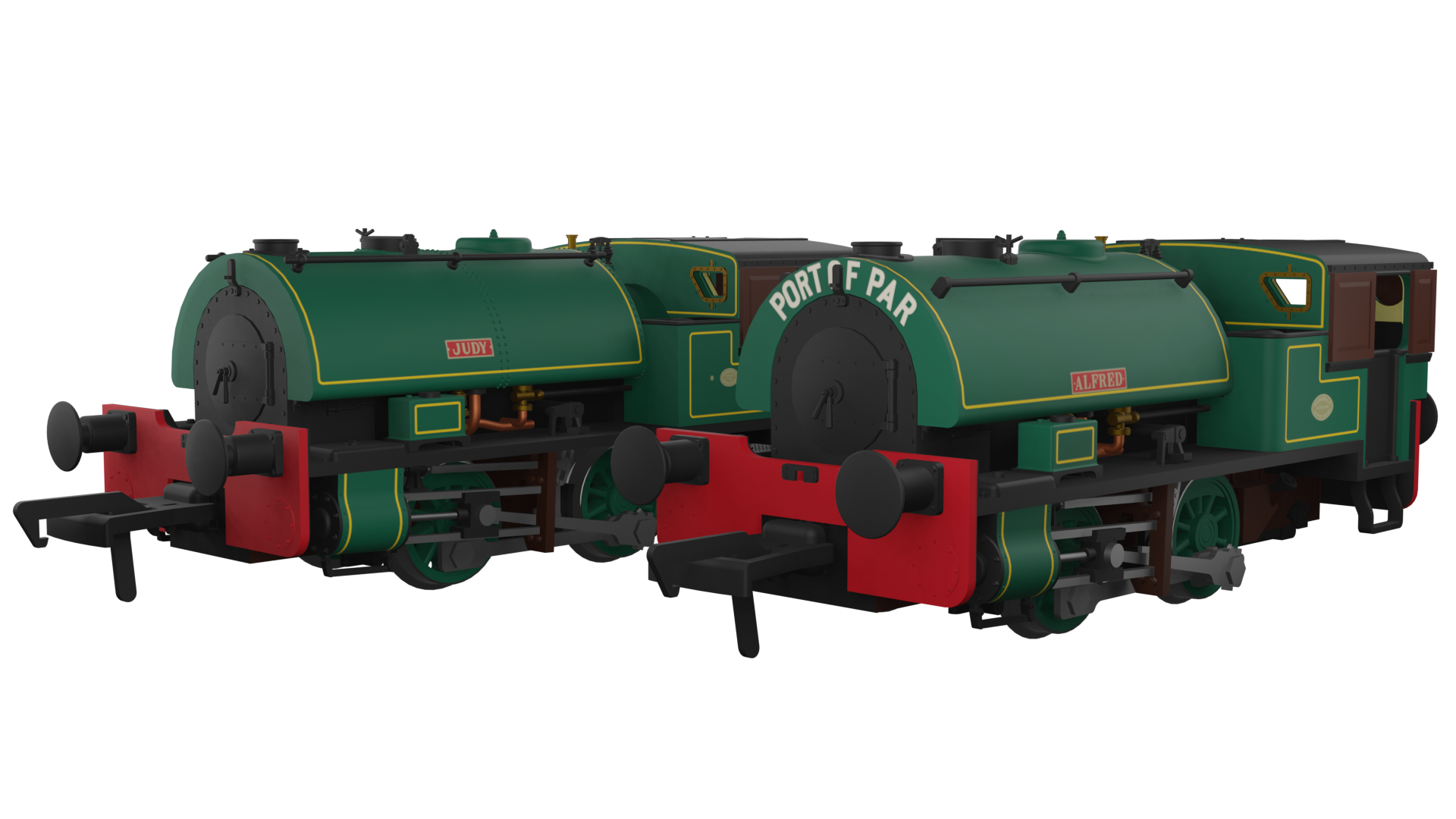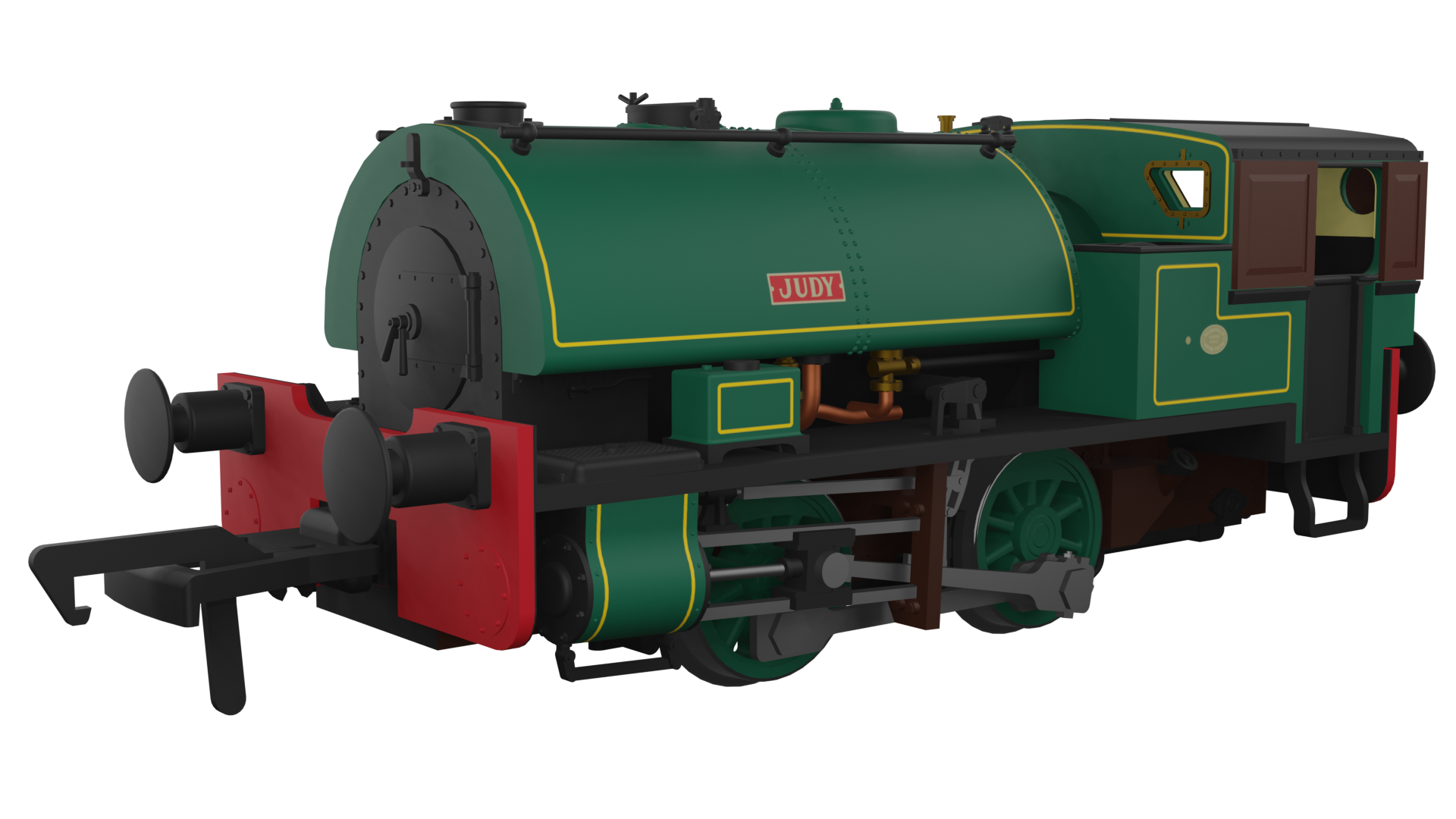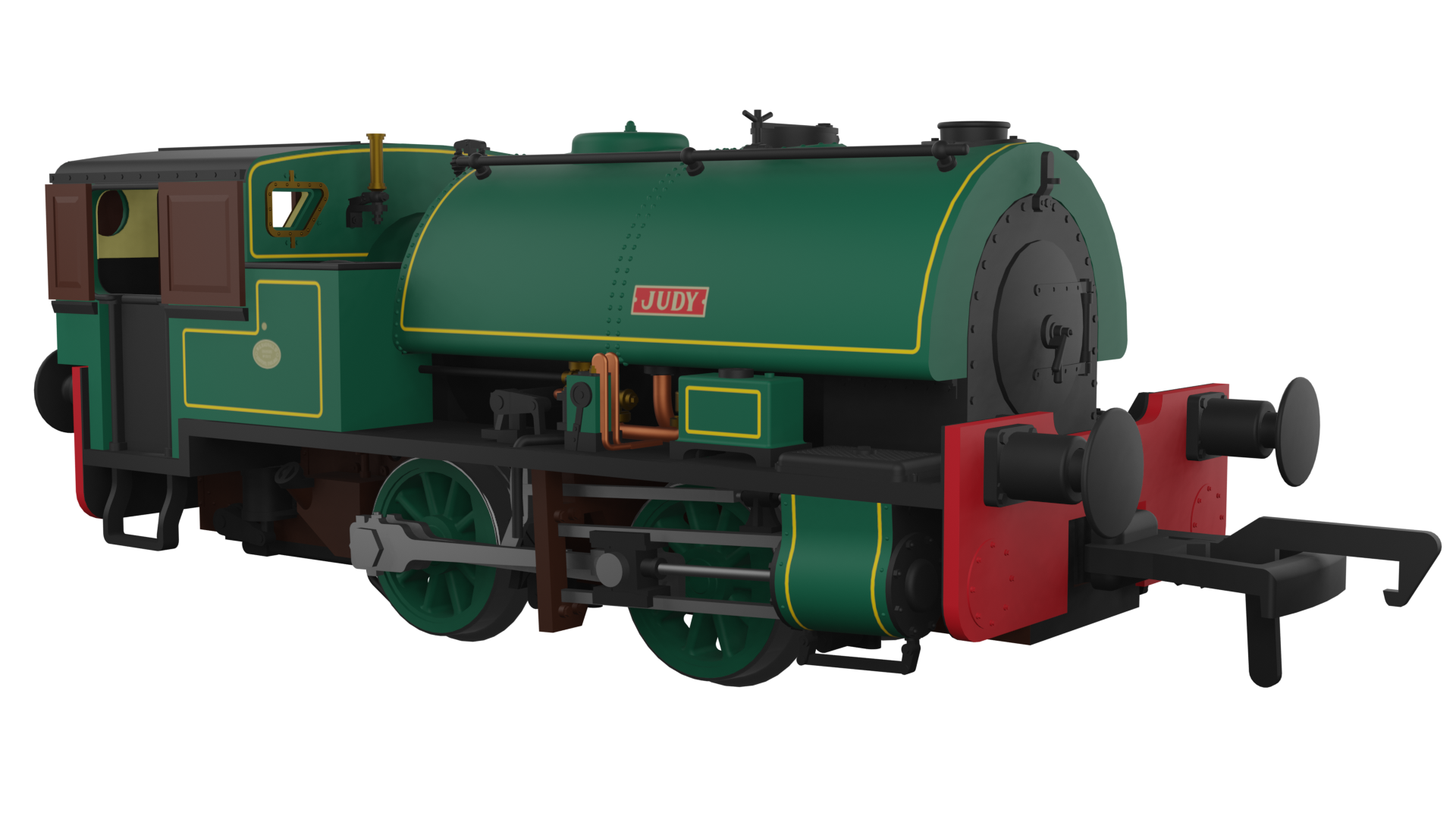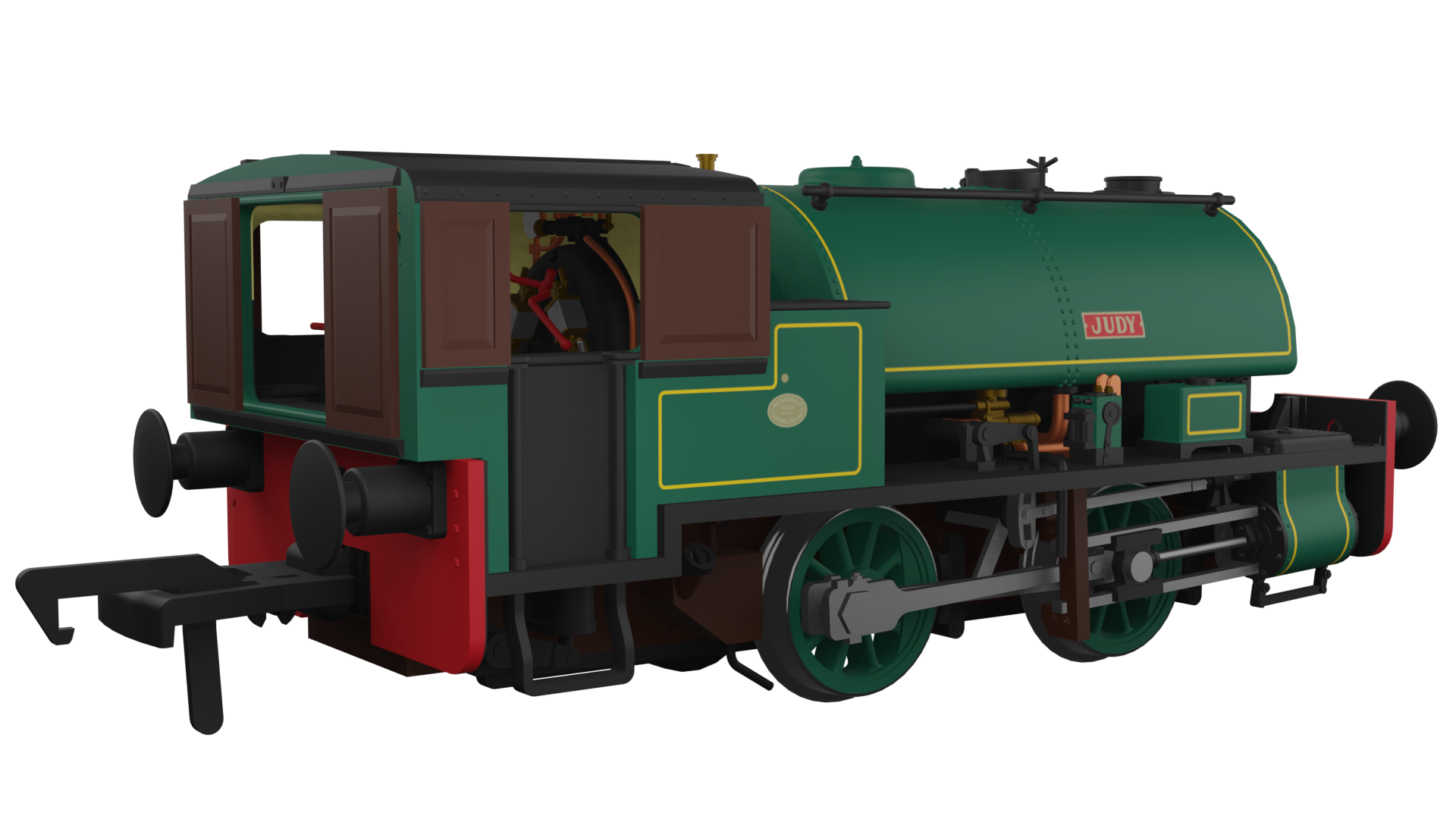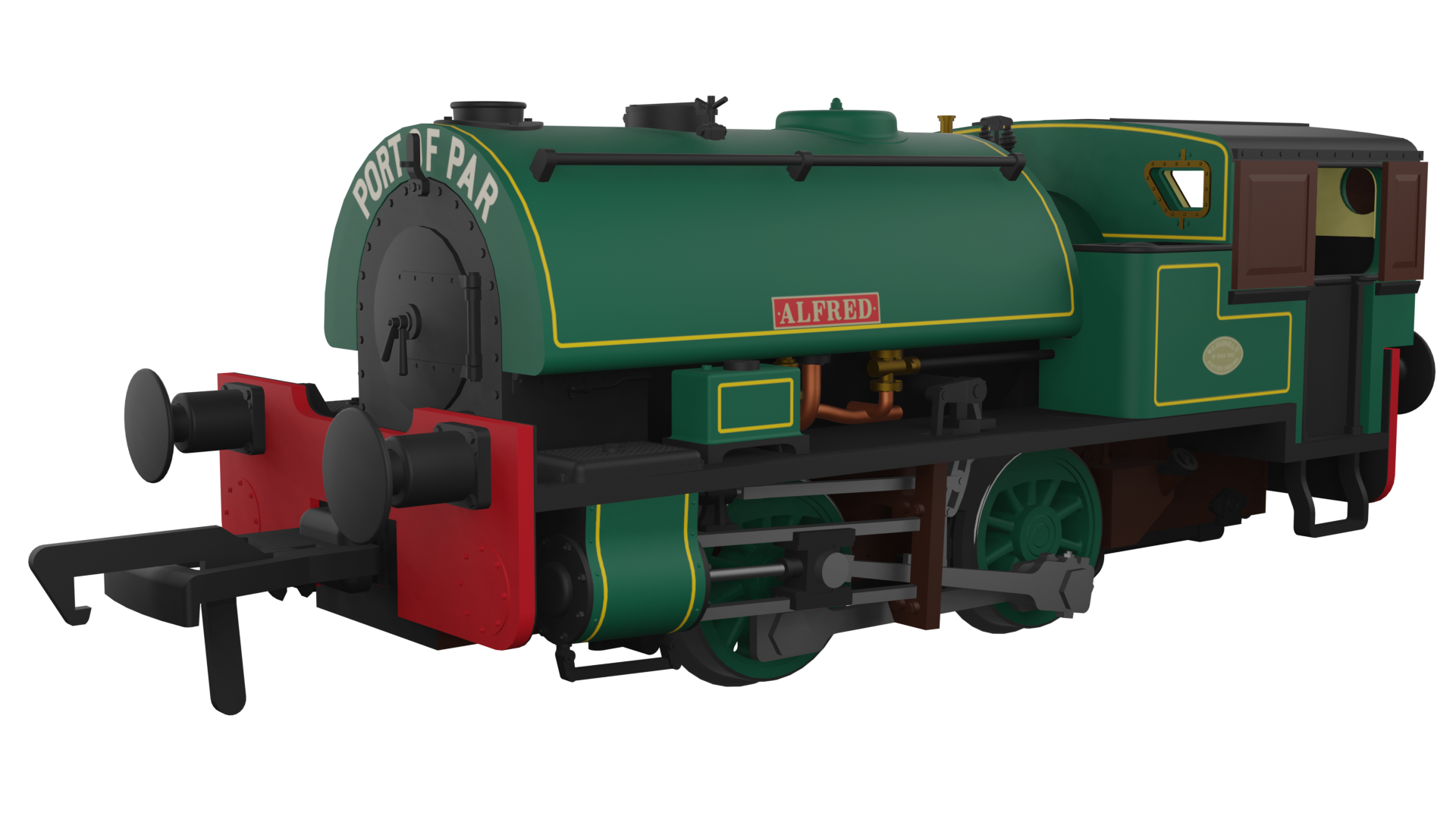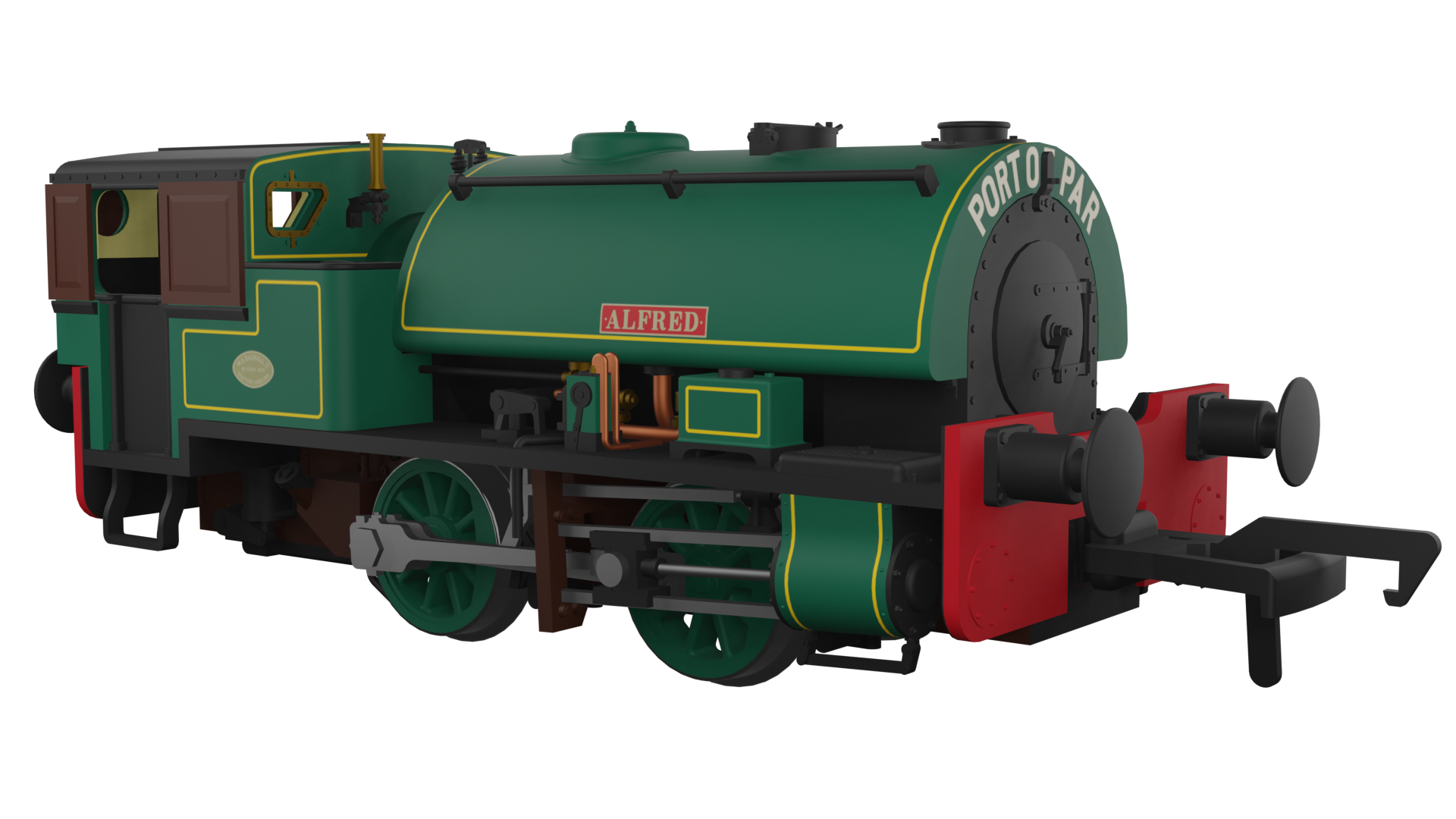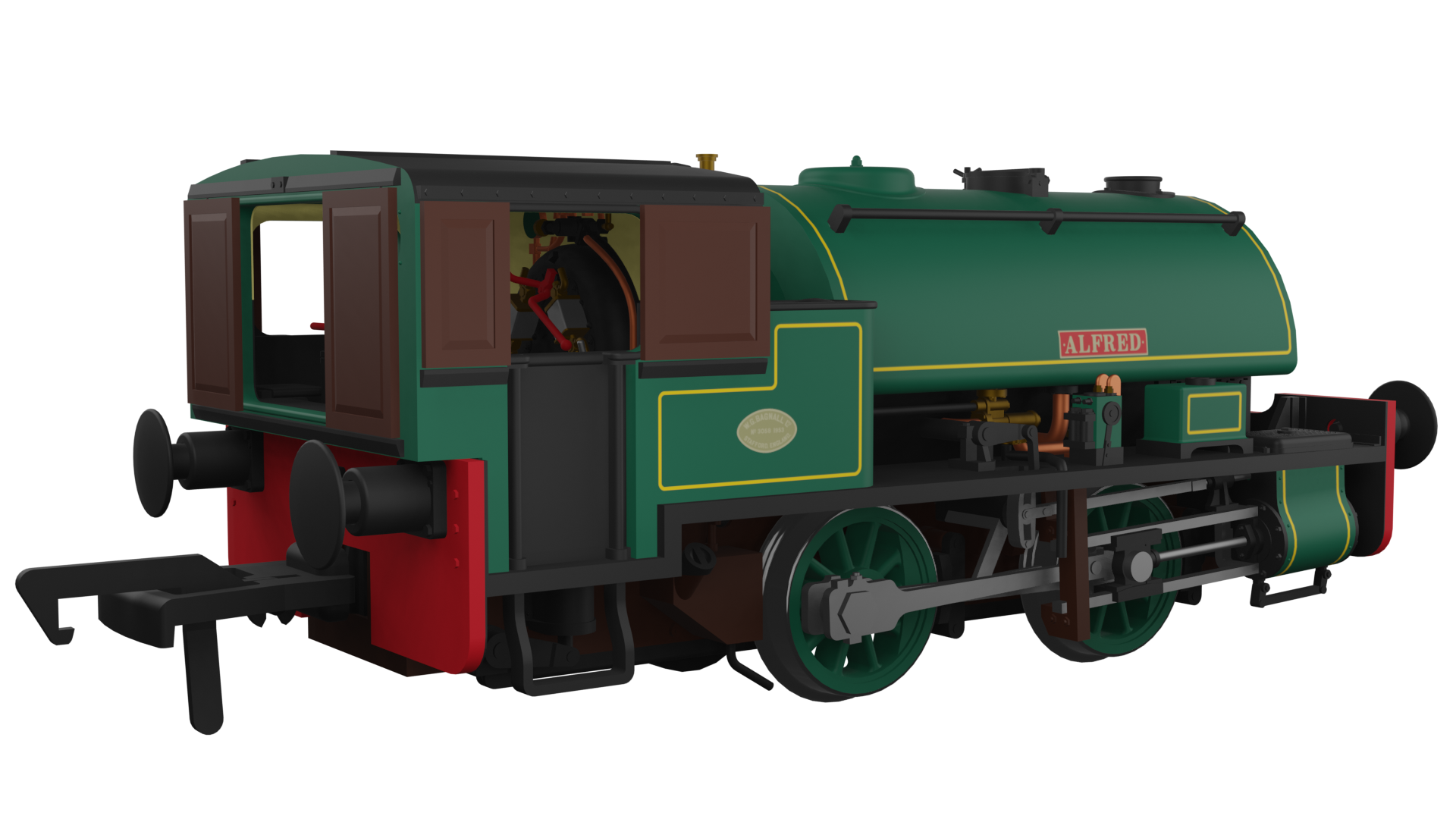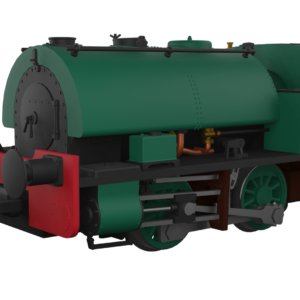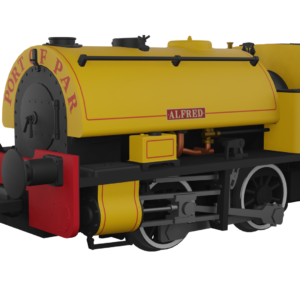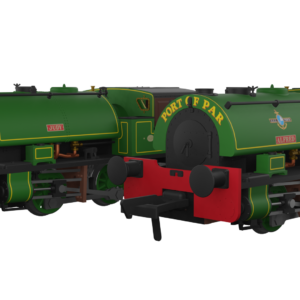Description
This is a pre order item which cannot be checked out. Please order by telephone or email, Expected price £242 DCC ready
The Port of Par “twins” Alfred and Judy are possibly some of the most recognisable small industrial steam locomotives to work in the UK. The reason these two locomotives were designed requires a look back in time.
In 1829 Joseph Thomas Treffry started to build Par Harbour. His business interests required coal to be imported and copper, lead and granite to be exported. Other ports were too small or faced logistical obstructions – resulting in the creation of Par Harbour. However geographical restrictions meant that engines had to pass under an 8ft tall bridge under the Cornish Mainline to reach the china clay works along with operating on curves down to a 70’ radius. The port had previously had a number of ramshackle and hand-me-down locomotives but in the mid-1930s something better was needed.
In September 1937 the locomotive was delivered at a cost of £1200 carrying the works number 2572. It had originally been planned to name her Chough after the distinctive species of Cornish bird. The message was received by Bagnall as Cough, which they thought was rather strange and so she was sent to Par without a nameplate. She was finally given nameplates that read Judy after 1955.
By 1952 the low-profile Sentinel Toby required replacement and an upturn in traffic meant an order was placed for another locomotive. In 1954 Alfred was delivered (named after the manager of the harbour Alfred Truscott). Whilst nominally the same, Alfred had some differences to Judy with different bunker style, tank and handrail alterations (such as a tank filler that opened in the opposite direction) and a different purchase price – this time £7500.
The engines had a hard-working life hauling thousands of tons of china clay with both engines in operation each day. However, during the 1960s modernisation of the port started and rail traffic started to diminish. The branch line to the china clay workings was lifted and replaced with a road for lorries. Judy had started to experience boiler troubles so was withdrawn from traffic in 1969 – her driver Del Robins taking her into the shed for one last time for not only Judy’s retirement but his own. Alfred soldiered on until 1977 when, rather unglamorously, shunting was taken over by tractors.
The locomotives gained a celebrity status not least because of their unusual size and stature. They were some of the last working steam engines in Cornwall and the site became a stronghold of visits by railway enthusiasts. The engines became so popular that they also inspired the Rev. W. Awdry to immortalise them in his Railway Series stories as Bill and Ben, carrying a striking yellow livery.
Both locomotives can now be found on the Bodmin and Wenford Railway. Judy was returned to operational condition in 2023 whilst plans for returning Alfred to operational condition are being finalised with the intention that both locomotives will be available to work together once again.
Modellers can look forward to a smooth-running mechanism with flywheel, plunger pickups, a factory-installed speaker on all models, and a Next18 decoder socket fitted under the tank. There will also be separate tooling to accurately portray the slight differences between Alfred and Judy correctly. Sadly, it has not been possible to make the full Bagnall-Price valve gear operational due to the size and clearance of the parts – but we hope the few parts (that are mostly hidden) that don’t move will not detract from the overall model.
Double pack of “Judy” (Bagnall 2572) and “Alfred” (Bagnall 3058)
1960s condition
Lined dark green livery
Special Presentation Box
Illustrated booklet describing the history of the locomotives
Postcard print of exclusive Jonathan Clay painting
Coreless motor
Flywheel
Plunger pickups
Sprung buffers
Detailed cab interior
Factory-fitted speaker
Poseable rear shutters
Diecast metal running board
Optional scale couplings
Optional bufferbeam inserts
Tooling variations to accurately portray each loco

